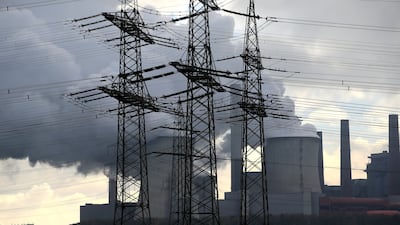After two weeks of negotiations, debates, announcements and promises, Cop26 came to an end with a new deal to address climate change. The Glasgow Climate Pact became the first deal to include a pledge on reducing coal, which is the single-biggest contributor to climate change. The final draft also commits the 197 countries, which signed the Paris Agreement in 2015, to phase out inefficient fuel subsidies. After attending this historic event, I headed back to the UAE with five key takeaways that would give us a clear idea of the task at hand ahead of Cop27, to be held in Egypt next year.
First, more needs to be done. The Paris Agreement has set the target for all signatories to keep average global temperature change below 2°C and as close as possible to 1.5°C. Experts at the summit estimate that we are now on a path to between 1.8°C and 2.4°C of warming. Countries agreed that they will meet next year to pledge further cuts in greenhouse gas emissions. This puts for pressure on Cop27.
Second, ensuring that nations are making progress in their targets needs more transparency in reporting. The technical negotiations on the Paris Agreement Rulebook, which fixes the transparency and reporting requirements for all parties to track progress against their emission reduction targets, have been finalised. Transparency goes beyond reporting to also include starting an open and honest dialogue between all relevant parties such local communities, businesses and government leaders.
Third, global co-operation can make or break the success of the Paris Agreement. The world is more interconnected and complex than ever before. There are no geographical borders for climate change, and it is unrealistic to think that the actions of one country, or even a few, can solve this global challenge. Coming together at Cop26 gave us a tiny glimpse of hope to greater international co-operation. An unexpected US-China declaration, at Cop26, was described as a substantial move; both countries agreed to co-operate on methane emissions, the transition to clean energy and decarbonisation. While governments need to work together to combat climate change, cross-sector co-operation is also imperative.

Fourth, rich countries need to chip in and support other countries. Developing countries suffer the greatest from the devastating impact of climate change, yet they contribute the least to greenhouse gas emissions. More investments and financial support are needed to increase the resilience of these countries in various sectors from green infrastructure, agriculture, to education. Some developed countries have resisted taking responsibility for the damages that poor countries are facing and vetoed the creation of a new Glasgow Loss and Damage Facility to support these countries. Developing countries deserve more than empty promises; the $100 billion pledge that was made by rich countries during the Paris Agreement has never been fulfilled. The Glasgow Climate Pact includes a new pledge to double the support towards helping poorer countries by 2025 and encourage technology transfer and capacity building.
Fifth, the role of youth and the private sector is key. A just transition to a net-zero future needs to include all stakeholders starting with youth who are our future. The private sector will need to transform its role to shape innovative and sustainable solutions to build nations’ resilience. It will also need to adapt to more sustainable practices within its organisations, which could range from internal communications, transportation, infrastructure to supply chains.
As we look to Cop27, as well as Cop28 in the UAE in 2023, major carbon emitters need to make concrete steps towards more ambitious goals. This global platform should also ensure that indigenous communities, youth, women and the most vulnerable countries are heard and represented. Most importantly, all nations need to acknowledge that we are all in the same boat; a hole at one end will sink us all.


